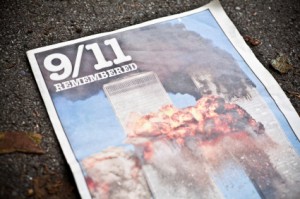 Last month marked 10 years since the twin towers fell in New York City. To mark the event’s historical significance, news organizations went all out. From magazine pages dedicated to the children of those lost in the flames, to day-of video coverage broadcast on news channels, the day did not go unsung.
Last month marked 10 years since the twin towers fell in New York City. To mark the event’s historical significance, news organizations went all out. From magazine pages dedicated to the children of those lost in the flames, to day-of video coverage broadcast on news channels, the day did not go unsung.
Newsday, for example, created a database of memoirs for the 500 victims from Long Island, N.Y., while the History channel aired video from nine New Yorkers who were witness to the events that befell the city on Sept. 11. Anniversaries marking major events in our history don’t happen all the time, so a lot of planning goes into a broadcast or issue, especially for an event like 9-11.
At the Christian Science Monitor, preparations began early in 2011. “9-11 was a little different; everyone knew that the 10th anniversary of the attacks would be a moment to reflect on the last decade,” said Christian Science Monitor editor John Yemma. But the Monitor had to take into account unforeseen events, such as the death of Osama bin Laden. Because of his demise, the publication did a retrospective war on terror piece well before Sept. 11. “That changed our thinking about how much we would want to do in and around 9-11; rather than multiple pieces running in July, August and early September, we did a big thing in early May,” said Yemma.
There are many considerations when planning anniversary coverage. The Monitor focused on the people who had been directly affected by 9-11 and caught up with them in 2011. But they took into account that people read multiple news sources, so left the historical timelines up to news organizations like the New York Times and Associated Press. “We thought we would do added-value things, and I think we succeed in doing this,” he said. “You try to differentiate yourself, but you don’t want to be so rarefied you’re not speaking to the moment either.”
No one needs to say that Sept. 11 was an important anniversary to cover, but while the Monitor does their share of anniversary coverage, Yemma said they do try to avoid doing it all the time. “It’s such a convention in journalism,” he said. The publication will probably do a piece on the 2011 Tsunami next spring, but probably won’t do anything more than note the 20th anniversary of the Soviet Union’s dissolution this December. “In terms of monumental history that’s a big one,” he said. “We have done small pieces, but we’ve never done a huge cover story on it and I don’t know that we will; it might be just enough to note it. I don’t know if enough people are really focused on that sort of thing. That kind of anniversary is something of a closed chapter, unlike the war on terror that continues,” he said.
During anniversary coverage, especially when memorializing an event like 9-11, it’s the news organization’s job to help readers understand the meaning of events and why they matter, Yemma noted. “You need to be able to spin it forward … it’s important to note how significant this moment was because it still has an ongoing effect on our lives; it’s a deeper understanding of why the story matters and how it will go from here.”
–Katrina M. Mendolera
![]()

